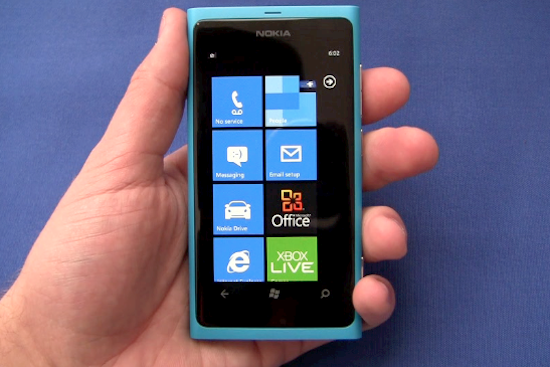
When Nokia and Microsoft initially announced they would be working together, the initial reactions were a bit all over the place. As it stood then, Nokia was kind of in the same place RIM is in now – where people’s discussions about the company leaned more towards, “So when will so-and-so buy them out?” over, “I can’t wait for that phone!” But, when a good partnership comes into play the conversation is obviously going to change. And now that we are ever closer to seeing the first Windows Phone-powered Nokia-branded devices hit the shelves, the conversation is obviously picking up all over again.
Is Nokia going to be good for Microsoft? Is Microsoft going to be good for Nokia? After we see the full release of the Nokia devices into the market, and once Nokia (finally) launches their Windows Phone invasion into the United States, that’s when we’ll be able to really answer those questions. More than likely, with the design aesthetics that make Nokia so popular and the software that is Windows Phone, both Microsoft and Nokia should see a nice bump in sales and presence. Will it be huge? Only time will tell, but I can imagine that both Nokia and Microsoft will be happy with the result.
My question is at this point, will it matter? The truth is Microsoft’s Windows Phone is the same as it when it launched, at least on the surface. While the company did just launch Mango, or Windows 7.5, and it included 500 new software improvements (many of which are incredibly cool, and others you’ll never even notice), if you look at Windows Phone 7 and Windows Phone 7.5, you won’t see a difference right off the bat. For some people, that’s not going to be a bad thing, because Windows Phone is an attractive OS that doesn’t need to be changed.
But, if you’re trying to draw in new customers, and Microsoft has admitted that they need new customers for their smartphones, I don’t really see how Nokia is going to make much of a difference. Yes, the hardware is fantastic, but not many people in the United States know that. I know several people who have never even touched a Nokia-manufactured phone, and when I asked them if they would think about buying a Windows Phone from Nokia, they asked me if Nokia had changed anything with the OS. I told them no, and they apparently thought that was enough of an answer, because that was the end of the discussion.
And that’s the rub. You look at Windows Phone right now, and there are people just not supporting it. We’ve heard in the past that carrier retail locations, specific employees of those places, were actually choosing other platforms over Windows Phone. Windows Phone, at least in the public’s eye or within the carrier’s, hasn’t seemed to change. It’s great that we’ve got new Windows Phone devices launching for T-Mobile USA and AT&T, but where are the new phones for Verizon and Sprint? Has Microsoft just decided to skip over those two? Or was that something the carriers decided? Honestly, if both Verizon and Sprint have decided to go with a “wait and see” approach with Windows Phone, I wouldn’t be surprised in the slightest. But that should be a huge indicator for the mobile platform.
Microsoft needed to do something on the software side of things long before we can talk about whether or not Nokia is going to make a huge impact on Windows Phone. Actually, that’s only partly true. In truth, if Nokia can start turning out handsets by the bucket load, much in the same way that some manufacturers do for Android, then I think Nokia could make a huge impact for WP, and Microsoft would rake in the benefits. Will that happen? We’ll have to wait and see.